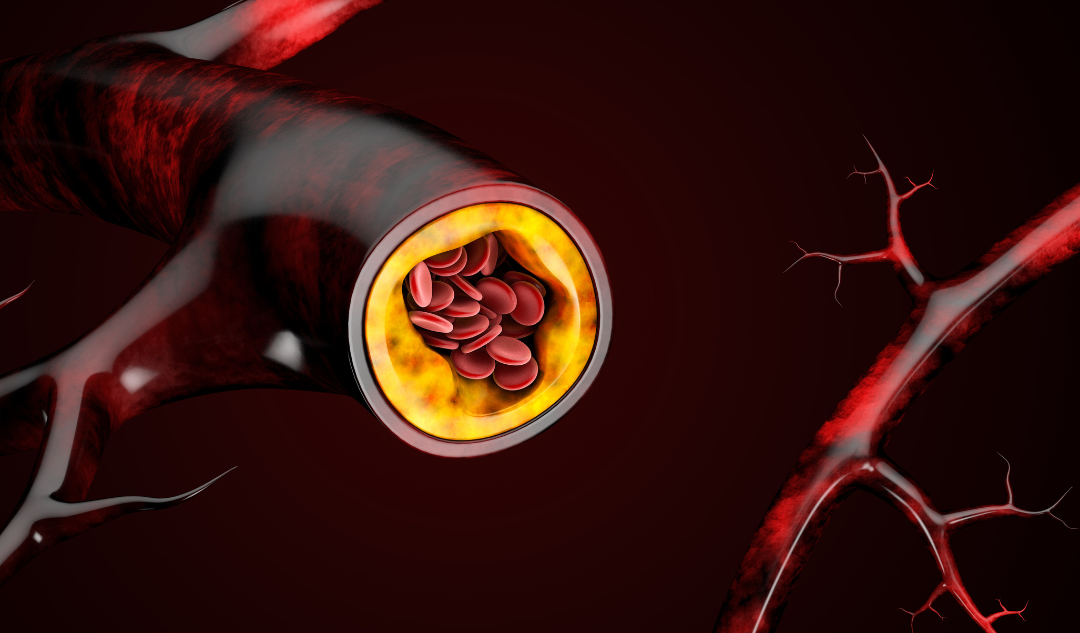Cholesterol, if you have done any research into dieting, healthy eating or just generally care about your health, you have most definitely heard a lot about this topic. But what exactly Is cholesterol? What is the purpose of it and why, for years, have we heard from doctors and dieticians for that high cholesterol is bad for us? In todays blog, I want to explore the topic of cholesterol, talk about the so called “good” and “bad” cholesterols and dispel some myths around these categories that have persisted for so long.
Cholesterol is a fatlike substance in your blood, and it is essential for good health. It is vital for our immune system to thrive; cholesterol works hand in hand with our white blood cells to eliminate infectious bacteria as well as pre-cancerous cells. There are two kinds of cholesterol, Low-density Lipoprotein (LDL) often referred to as the “bad cholesterol” and high-density lipoprotein (HDL), considered the “good cholesterol”. The common advice given to us by medical professionals is that in order to maintain our health we must increase our HDL (high-density lipoprotein) and to lower our LDL (low-density lipoprotein). But is lowering our LDL really good fore us? Is it a true factor in getting heart disease? Do people with low LDL live longer than people with high LDL? When you take a deep dive into the topic and look at all the new research surrounding the topic, the answer will surprise you.
New research shows that people with high LDL die less often of cancer infections and autoimmune disease. Another interesting fact is that elderly people with high LDL-C live as long as or even longer than those with low LDL-C. These facts alone provide reason to question the validity of the cholesterol hypotheses.
One of the leading factors in the future risk of heart attacks is Coronary Artery Calcium. This is something that has been known for a long time. We also know that we do not have a drug to treat this, and this is independent of your LDL levels. In a perfect world, you would want your CAC score to be 0 as a high CAC score is the cause of heart attacks and People with a low CAC score, do not generally have heart attacks. What may surprise you is that the LDL levels between these two groups are no different. This means that high LDL levels do not directly corelate to risk for heart attacks.
One cause that we know for a fact is responsible for heart attacks is high blood sugar. People with high blood sugar levels are usually at a higher risk for heart attacks, again this is independent of high cholesterol. From this we can rationalize that cholesterol is not the causative agent.
Doctors will tell their patents with a high CAC score to go on statins, a prescription medication that lowers cholesterol. While often they will tell patients that the statins will lower their CAC score, there is no research that shows this is true. Not only do they not lower the CAC score, it’s an excepted fact that the statins will increase your CAC score. There are numerous studies that show this time and time again.
When it comes to the topic of cholesterol, there are many huge conflicts of interest that wish to maintain the notion that cholesterol is inherently bad for you. There are vast amounts of profit to be made by demonizing cholesterol. This allows large companies, particularly in the food and pharmaceutical industries to sell products considered to be “cholesterol lowering” such as oatmeal, cheerios, corn oil or statin drugs like Lipitor.
What may surprise many is that, for people over sixty, it’s best to have high cholesterol! It’s great for the immune system and for the brain and new research shows that it helps with dementia. It also seems that people with high cholesterol seem to live longer that people with low cholesterol. Another big risk factor for heart disease is smoking, smokers have 3x more heart attacks than non-smokers.
So, is LDL completely innocent of causing heart disease? Well yes and no, there is a component of LDL that is considered to be “damage LDL”, this is called small dense LDL that is associated with heart disease. When you look at a healthy person with low blood sugar, low triglycerides and high HDL, what you see coming out of the liver and into the blood stream is called large buoyant LDL. This is an LDL that is essential for providing nutrients through the blood stream. It’s a form of LDL that is not associated with heart disease. If, however, a person has high blood sugar, high triglycerides and poor metabolic health, what you find is that, as the LDL makes its way through the blood stream, it the diorites, it becomes a small dense LDL that is associated with heart disease.
So in conclusion when we are talking about cholesterol, it becomes a complex topic, its not so cut and dry as just eating so call cholesterol lowering foods, or using a statin. If you follow a low carb diet and stay away from all sugars, get some exercise, and don’t smoke, you will give yourself a great chance to have a full long and healthy life.

